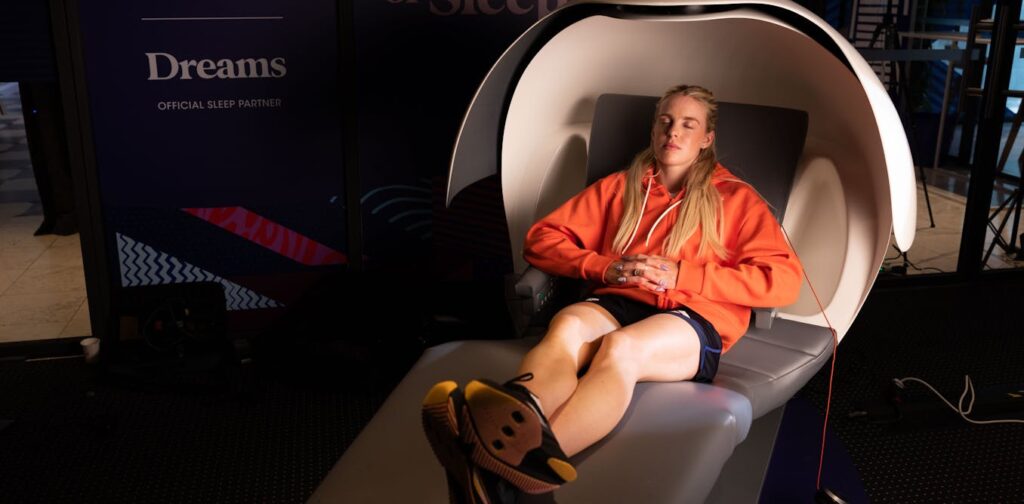
When we think of elite athletes, we often envision individuals who excel in every aspect of their physical endeavors. However, a critical component of their performance, sleep, is frequently overlooked. Does being a superhuman athlete translate to being a superhuman sleeper? Surprisingly, the answer is not as straightforward as one might assume.
Exercise is commonly linked to improved sleep, and it seems logical to conclude that elite athletes, whose careers revolve around physical exertion and recovery, would naturally be good sleepers. Yet, a 2021 study involving 175 elite Australian athletes from 12 sports revealed that only 3% consistently achieved sufficient sleep, while a staggering 71% fell short by an hour or more. This pattern is echoed in studies across the United States, Brazil, Germany, Switzerland, and China.
Barriers to Sleep Among Athletes
For athletes, the most formidable adversary to achieving adequate sleep is often their rigorous training and competition schedules. Individual sport athletes, such as swimmers, triathletes, and cyclists, face early morning sessions and minimal rest days. Meanwhile, team sport athletes, like Australian rules footballers and netballers, contend with fluctuating schedules and travel demands.
Anxiety before competitions further complicates sleep for many athletes. Yet, sleep is crucial for athletic performance, as highlighted by a recent consensus statement from sleep and sports scientists worldwide. They acknowledged that elite athletes are particularly prone to insufficient sleep, a sentiment echoed by renowned athletes like Usain Bolt, LeBron James, and Roger Federer, who emphasize sleep’s role in their success.
Sleep, Illness, and Injury
Research indicates that while elite athletes can perform well after a single night of insufficient sleep, the real challenge arises when facing consecutive nights of inadequate rest. This is especially concerning during intensive training periods. Moreover, insufficient sleep increases vulnerability to illness and injury.
Individuals who sleep 5-6 hours per night are 4.5 times more likely to develop a common cold following exposure to rhinovirus compared to those who sleep seven hours per night.
The link between sleep and injury risk is less definitive, but inadequate sleep can slow response times, impair movement patterns, and reduce sport-specific skills, potentially leading to injuries. Furthermore, insufficient sleep leaves athletes feeling fatigued, perceiving exercise as more strenuous, and experiencing greater mood disturbances.
Recovery is paramount for athletes, and without sufficient sleep, recovery is compromised, impacting subsequent performance. This underscores the belief among sleep and sports scientists that sleep is foundational to athletic recovery and performance.
Strategies for Enhancing Sleep in Athletes
In elite sports, marginal gains can determine podium finishes. The Tour de France exemplifies this, with teams optimizing riders’ sleep conditions through “recovery buses” and personalized hotel accommodations. Despite the race’s demands, cyclists average 7.2 hours of sleep per night.
However, not all athletes have access to such resources. Here are some strategies for athletes and coaches to promote better sleep:
- Consistent Sleep Schedule: Encourage athletes to maintain a regular sleep schedule, even on rest days, to regulate their body clock.
- Pre-Sleep Routine: Develop a calming pre-sleep routine to help athletes unwind and signal to their bodies that it’s time to rest.
- Sleep Environment: Optimize the sleep environment by ensuring a comfortable mattress, pillows, and a dark, quiet room.
- Mindfulness and Relaxation Techniques: Incorporate mindfulness practices or relaxation techniques to reduce pre-competition anxiety.
- Limit Screen Time: Reduce exposure to screens before bedtime to minimize disruptions to the sleep cycle.
As the understanding of sleep’s impact on athletic performance grows, it becomes increasingly clear that sleep is not just a passive state but a critical component of an athlete’s training regimen. By prioritizing sleep, athletes can enhance their performance, reduce the risk of illness and injury, and ultimately extend their careers.
Looking forward, as more athletes and teams recognize the importance of sleep, we may see a shift in how training schedules and recovery strategies are designed, with sleep taking center stage as a vital element of athletic success.





